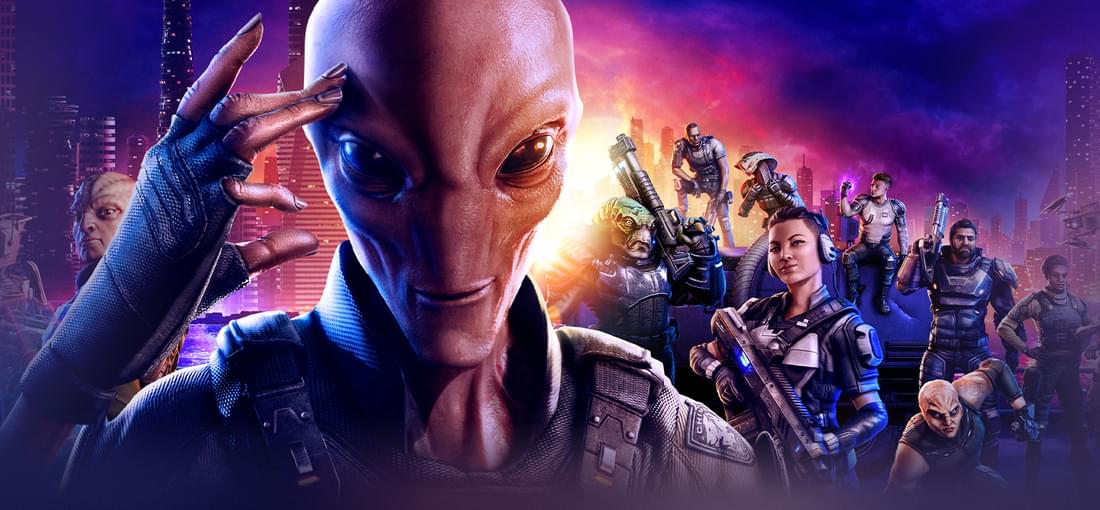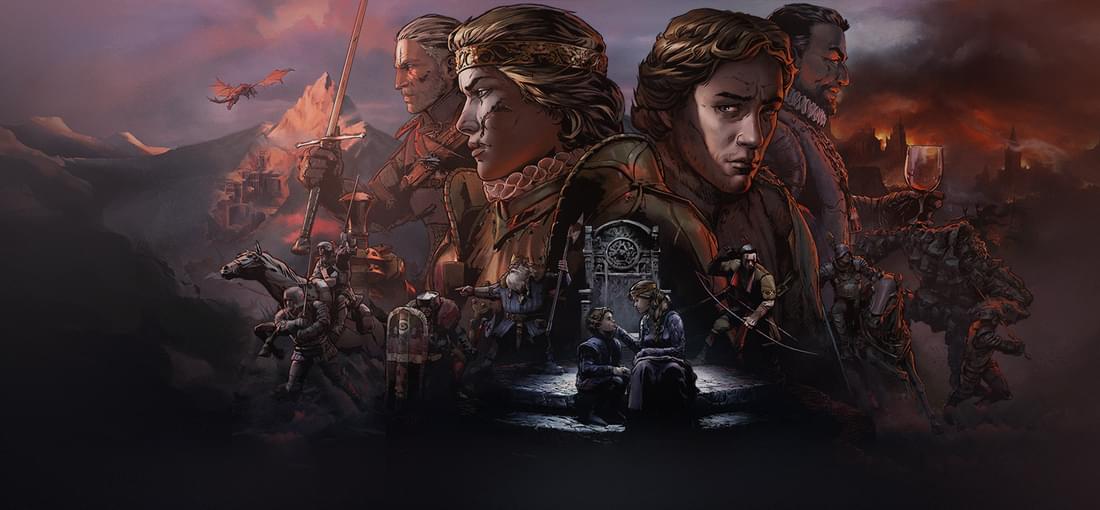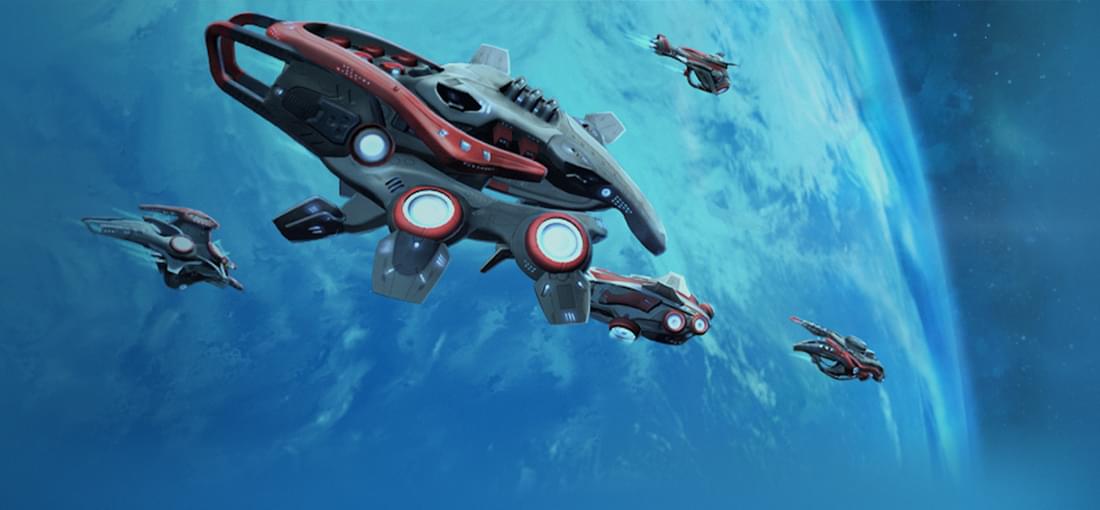


Well, ages of XCOM were like this: Ufo: Enemy Uknown, where you had commanded dozens of special forces operatives, a mercenary army in a sense, with multitude of bases, airfighters, dropships, tanks, etc. It was even counting spent bullets, encumberance, morale - pretty complex for precursor of a genre. Grim, deadly, unforgiving. Firaxis' remake XCOM cut elements which made mission lenghty (like you command during mission at most six operatives instead of twenty six soldiers freshly delivered by avenger). It felt more partisan - especialy XCOM2, than regular platoon/company. Also mechanics were much simplified, no action points, auto-cover, unlimited ammo - just reloading - yet it created engaging and dynamic, very fun game. On the other hand it added classes, special abilities, and more cinematic aliens. Tough and demanding but in different way than it's predecessor - more like a tactical puzzle to be solved. Chimera squad pushes this simplicity thing even more. You don't groom custom soldiersanymore - instead of classes you get pregens, each one with unique skills and purpose. It is no longer military - you are small policing force - Men in Black or buddy cop movies come to mind. It stays rather light-hearted. It is trying to answer how earth would look like after failed alien invasion. Quite political correct, but overall interesting storyline. Battles were replaced with 1-3 encounters, where you breech into part of building/area and then clear / neutralize remaining hostiles. Very fast and entertaining. Especially if you don't have time to play 100+hours long campaign. Anyway, it is still Firaxis XCOM - high quality, reimagined brilliant tactical strategy - why not to try?

...which is basically Thronebreaker. You explore a world, have a card-duels/battles and improve your deck. However, Thronebreaker brings quite a plotline in contrast to Shandalar. It uses Gwent rules-frame as is some familiar cards, to bring a detailed story about Meve, Queen of Rivia. Story is well done, and while at global level someone may notice clearly used tropes, its' mini-stories - related to encounters are place where Thronebreaker shine. Aside of this - you really need to like Gwent :) because it takes most of the time. Some appeal may find also players who like puzzles, because some encounters may be won, only by very unorthodox tactics (i.e. attacking your own cards). Most of them are pretty challanging. There's also strategic layer (certain structures in army camp, resource management), set collection quests (find 3 card pieces) and roleplay-ish choices system - which are supposed to have consequences. When it comes to outcomes you basically have a couple of endings with some minor permutations. Another thing - maybe coincidence - is that main protagonist (Queen Meve of Rivia) potrayed here reminds strongly of Cassia from Blackguards2 - strong, royal, female character with handful of loyal (or not) friends. P.S. If you are fan of witcher, unfortunately there are only couple of cameos, mid-late in the game, so use of witcher in it's title is rather marketing tactic. You may meet however other characters from the books (like a Narrator :) )
There are RPG mechanics in it, indeed. I applaud choice of Dark Eye in place of many more popular but less mature systems like DnD. It is complex and provides tons over tons of interesting options. Plot is pretty linear, thus it is not full RPG experience (still more than classics of old, like early M&Ms), but it makes pretty immersive turn-based fantasy tactical combat simulator. You have your party, which needs to survive, and weapons, armors and naturally spells are at your disposal. Nevertheless, storyline is quite nice, distancing itself from 'good guys' trope, more rather like black & grey morality; plenty of missions (heck, I've got almost Bullfrog's Syndicate-feel), and perfect balance between puzzles and strategy elements (usually puzzle part is overdone in games). Characters are staple but likeable. Several good tunes help to achieve proper experience, while gfx part still holds. Some interface details could be better, yet you wouldn't notice after a while. Overall good game, especially if you like ttrpg-like skirmishes.

Well, actually *IT IS* MoO2 ;) More of the same goodness. If you ever played it's precedessor, then you'll easily recognize game mechanics - lots has been transplanted 1:1. So you have outpost and colony ships, familiar planetary buildings/star bases/ship components, etc. Tactical combat works in the same way, and race creation either. So then, why 5/5? MoO2 is a great game, and imitation is another way of flattery. Probably MoO3 could look like this, if dev team weren't too creative ;) There are also several improvements. There's additional resource - culture, and it allows you to change your empire traits (like traditions). However, you don't need to switch your pops between jobs. You need to take care of planetary infrastructure aside from POPs and environment. Your buildings are limited - you need to choose now, but it's not a very tough choice. Terraforming is no longer linear - it's a 2D matrix of biome & ecology. Spying is done by your leaders, and it's quite good. Research was streamlined into 6 disciplines. Events has been elaborated, more in GalCiv style. Asteroid belts are used in a very neat fashion. There's plenty of interesting ideas inserted between well-known parts! Overall game feels much better balanced, than original one. It lacks Stellaris production budget, and it's simpler but quite qood anyway. Recommended for MoO2 hardcore fans.